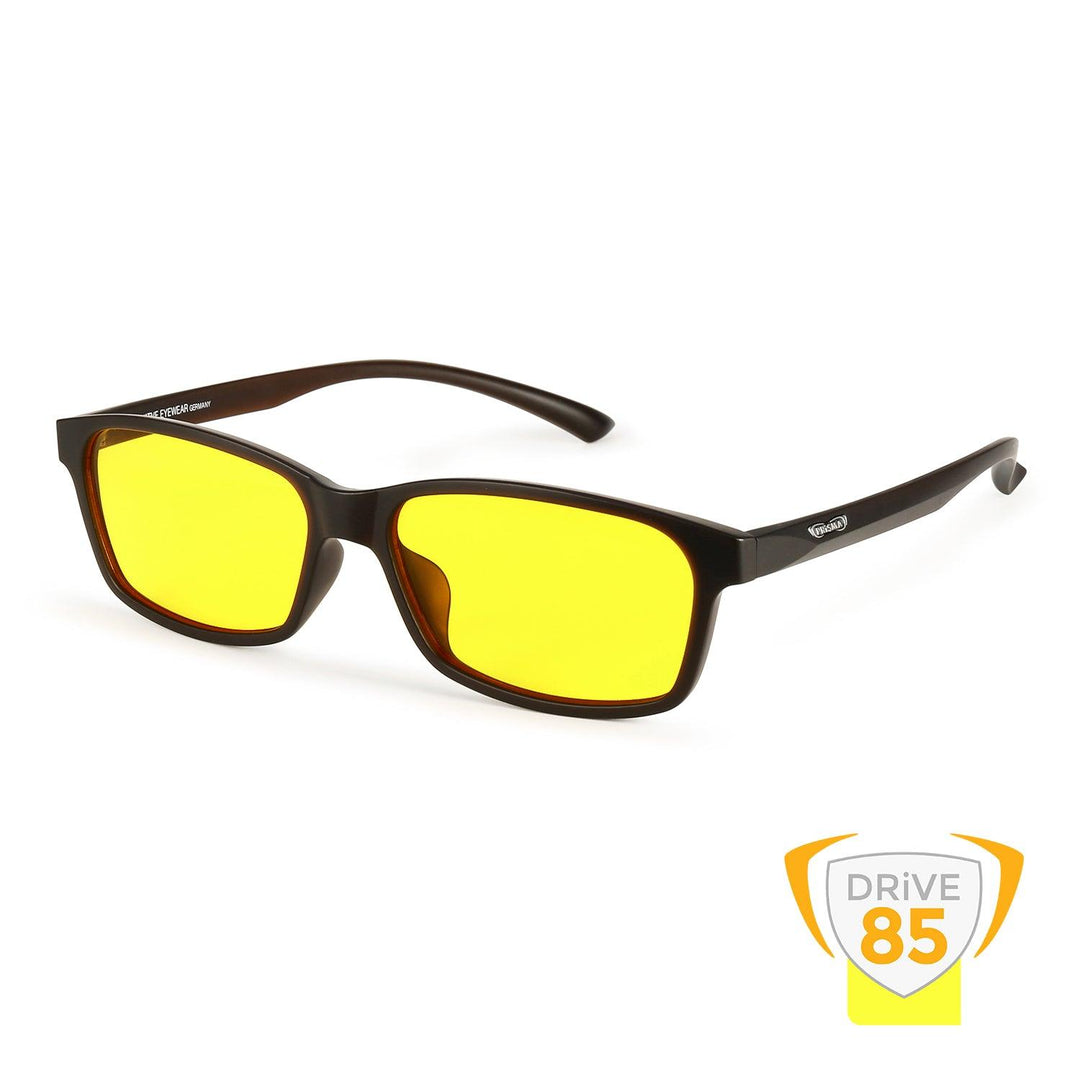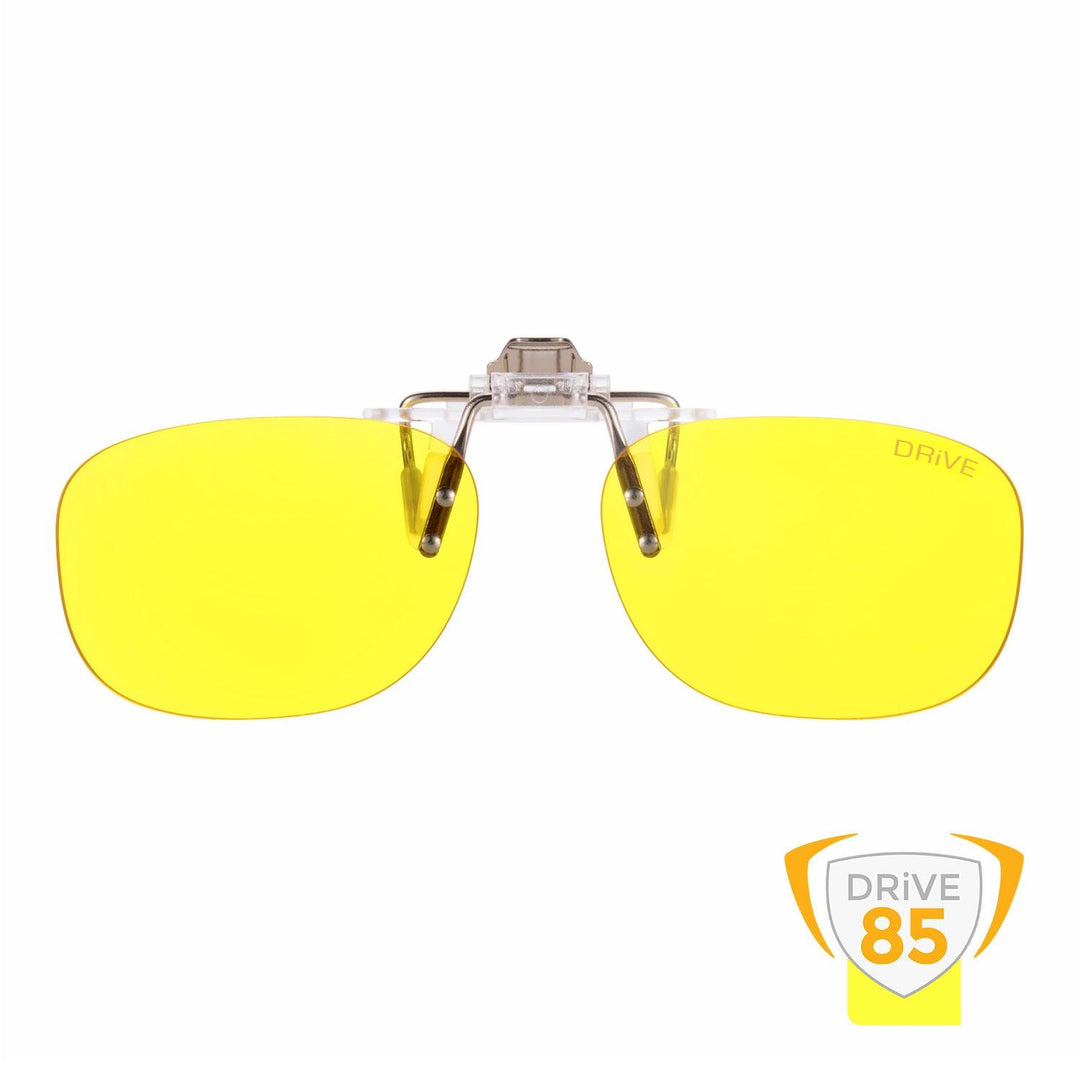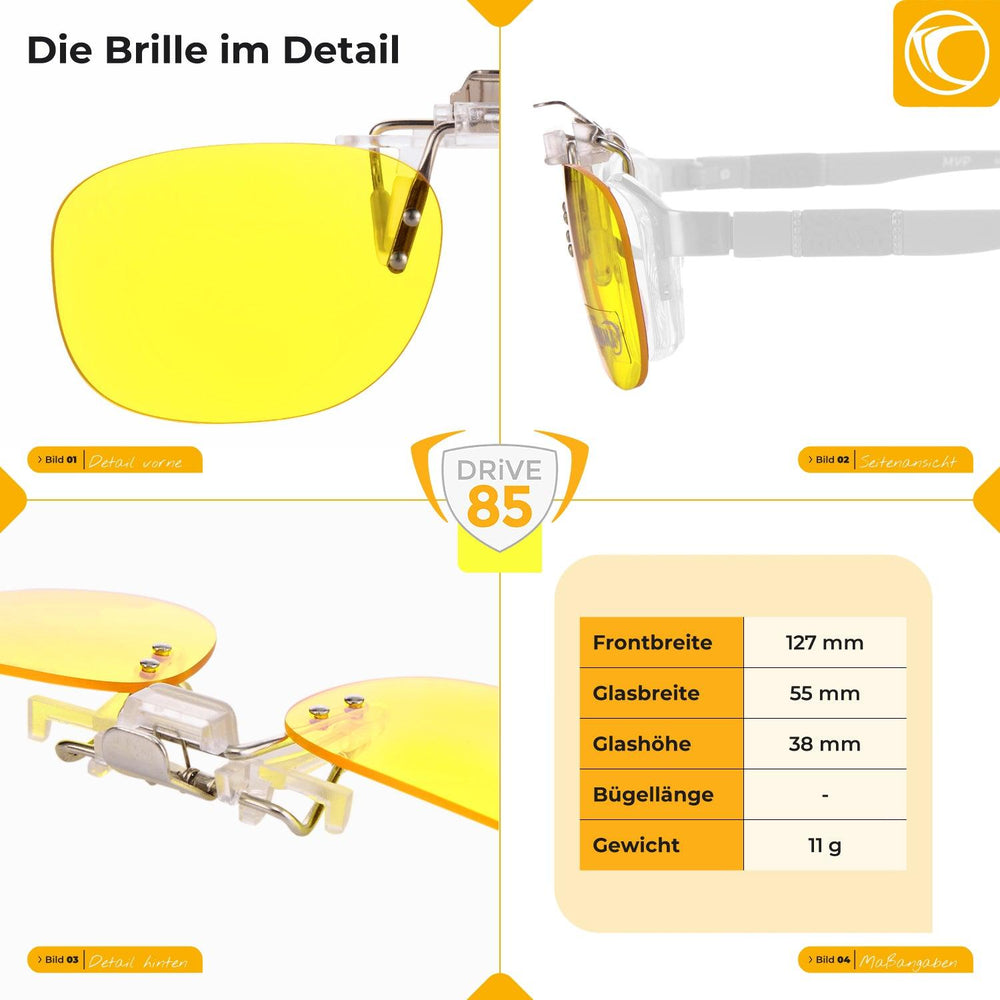Night driving glasses: An essential tool for night driving safety
The difficulty of driving at night
Driving at night can pose a significant challenge for drivers. Difficulties in visibility and glare from the headlights of oncoming vehicles are not only annoying, but also increase the risk of accidents. Night driving glasses can play an important role in improving safety on the roads. Older drivers and people with vision problems in particular can benefit from the additional protection such glasses offer.
Definition of night driving glasses Night driving glasses are specialized glasses designed to optimize visibility at dusk and darkness. It helps enhance contrast and filter glare, contributing to clearer vision and relieving eye strain to make driving safer.
Characteristics of night driving glasses Night driving glasses are characterized by their yellowish tinted lenses, which aim to reduce part of the blue light spectrum, which is often the cause of glare at night. The glasses are usually available without vision correction, but can also be adjusted for people who wear glasses.
Advantages of night driving glasses
- Eye relief: The yellow lenses help protect the eyes and reduce fatigue.
- Reducing glare: The special lenses reduce glare from headlights and street lights.
- Improved contrast perception: The glasses increase contrast sensitivity, which is helpful in low light conditions.
- Adaptability: The possibility of providing the night driving glasses with individual prescriptions is another advantage.
Night driving glasses from PRiSMA The PRiSMA Filter DRiVE85 glasses are high-quality night driving glasses that have been specially developed for the needs of drivers. It offers an optimal balance between blue light protection, light transmission and color rendering, ideal for professional drivers.
Real comparisons and tests Tests have shown that night driving glasses can actually improve vision at night. Despite some skeptical opinions about the effectiveness of yellow lenses, many users report significantly better vision and an increased feeling of security.
Who are night driving glasses suitable for? Night driving glasses are useful for any driver who feels unsafe at night or whose vision is impaired by darkness. It is important that the glasses are adjusted correctly and, if necessary, take into account the required prescription.
Conclusion Night driving glasses are a valuable tool for anyone who wants to drive more safely at night. It not only offers psychological support through an increased feeling of security, but also practical advantages that make driving at night easier.
Frequently asked questions about night driving glasses
- Can they be worn over regular glasses? Yes, there are models designed for this.
- Do they actually improve visibility at night? Many users confirm this, although the research is not yet conclusive.
- Are they helpful in fog? Yes, the yellow lenses can improve visibility in foggy conditions.
- Can I order glasses with my prescription? Yes, they are customizable.
- How do I find the right glasses? Professional advice and adjustment to your needs are recommended.
Schützen Sie sich vor Blendungen durch den Gegenverkehr
Moderne Xenon- und LED-Scheinwerfer sind sehr hell und können blenden, was das Sehen nachts erschwert. LED-Technologie ist zwar wartungsarm und hell, aber oft als unangenehm blendend empfunden. Augenforscher Prof. Olaf Strauß erklärt, dass Blendung durch entgegenkommende Fahrzeuge die Sicht bis zu 30 Sekunden stark beeinträchtigen kann, da das menschliche Auge bei Nacht durch helle Scheinwerfer überlastet wird.
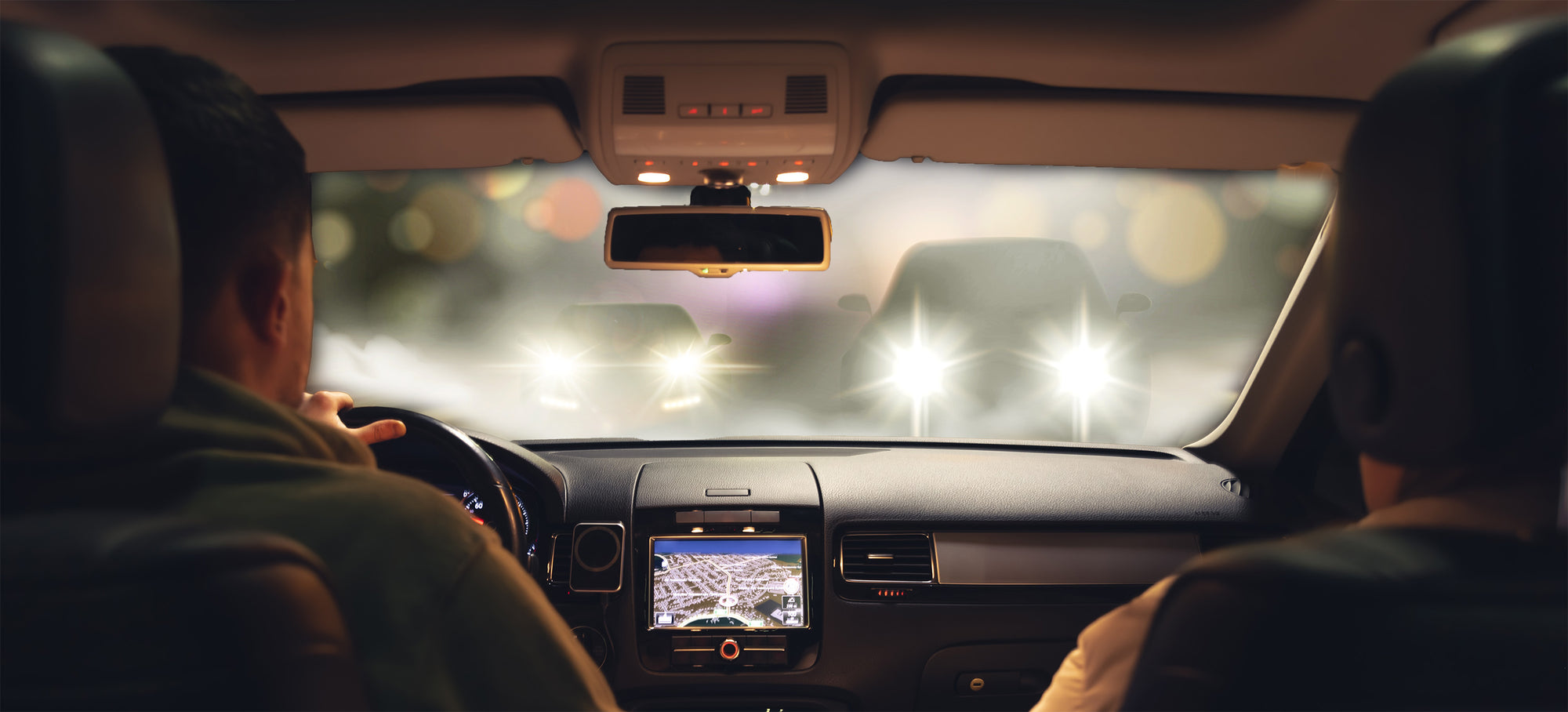
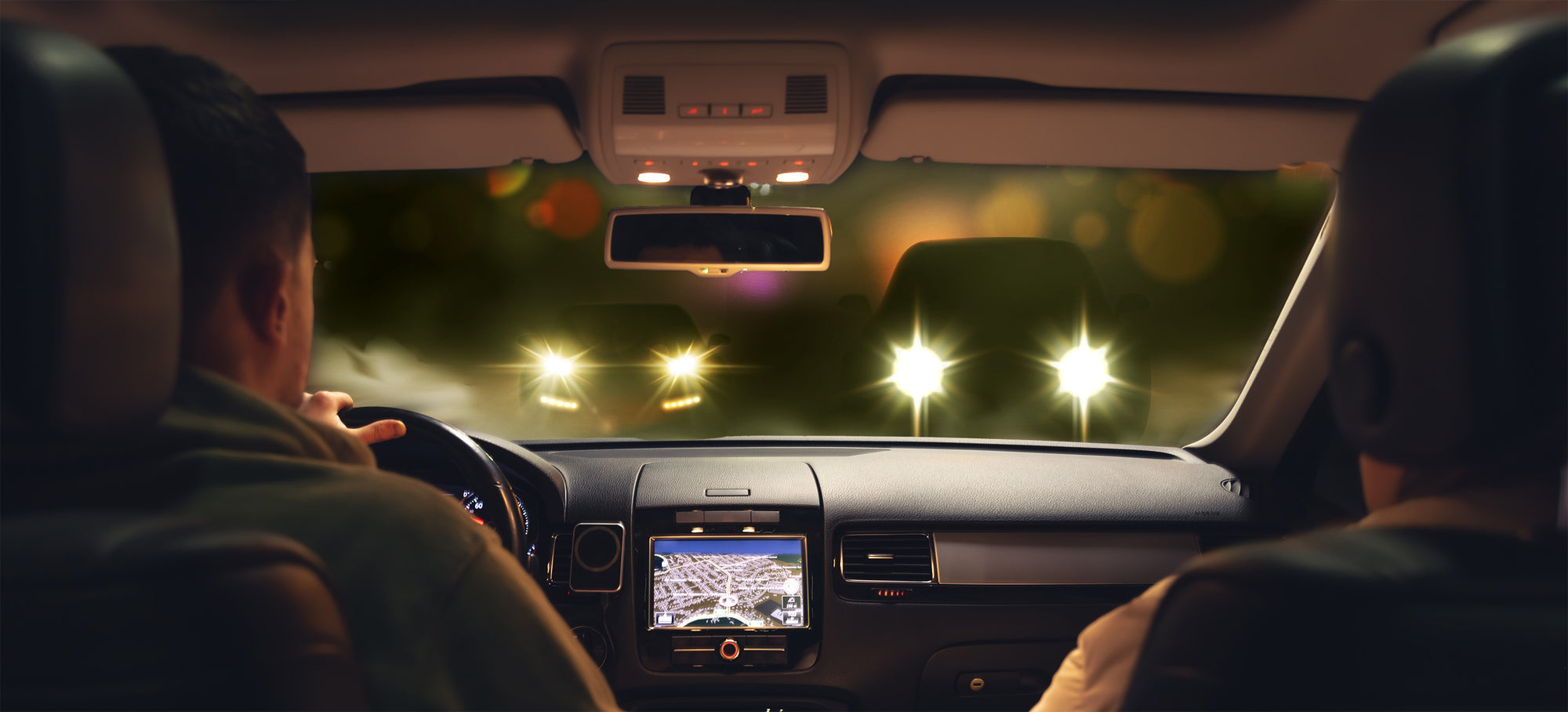
Vorsicht - bei farblosen Brillengläsern!
Mittlerweile werden vermehrt Brillen mit farblosen Gläsern angeboten. Diese können Blaulicht jedoch nur in ganz geringem Maße filtern. Physikalisch kann ein Brillenglas, das nicht gelb aussieht, kaum Blaulicht filtern. Ebenso ist nicht jedes gelblich aussehende Brillenglas ein effektiver Blaulichtfilter. Angaben über Filterwerte sind häufig ungenau oder sogar falsch und beziehen sich nur auf Teilbereiche des blauen Spektrums. Eine kritische Prüfung und Fachberatung sind daher unerlässlich.












